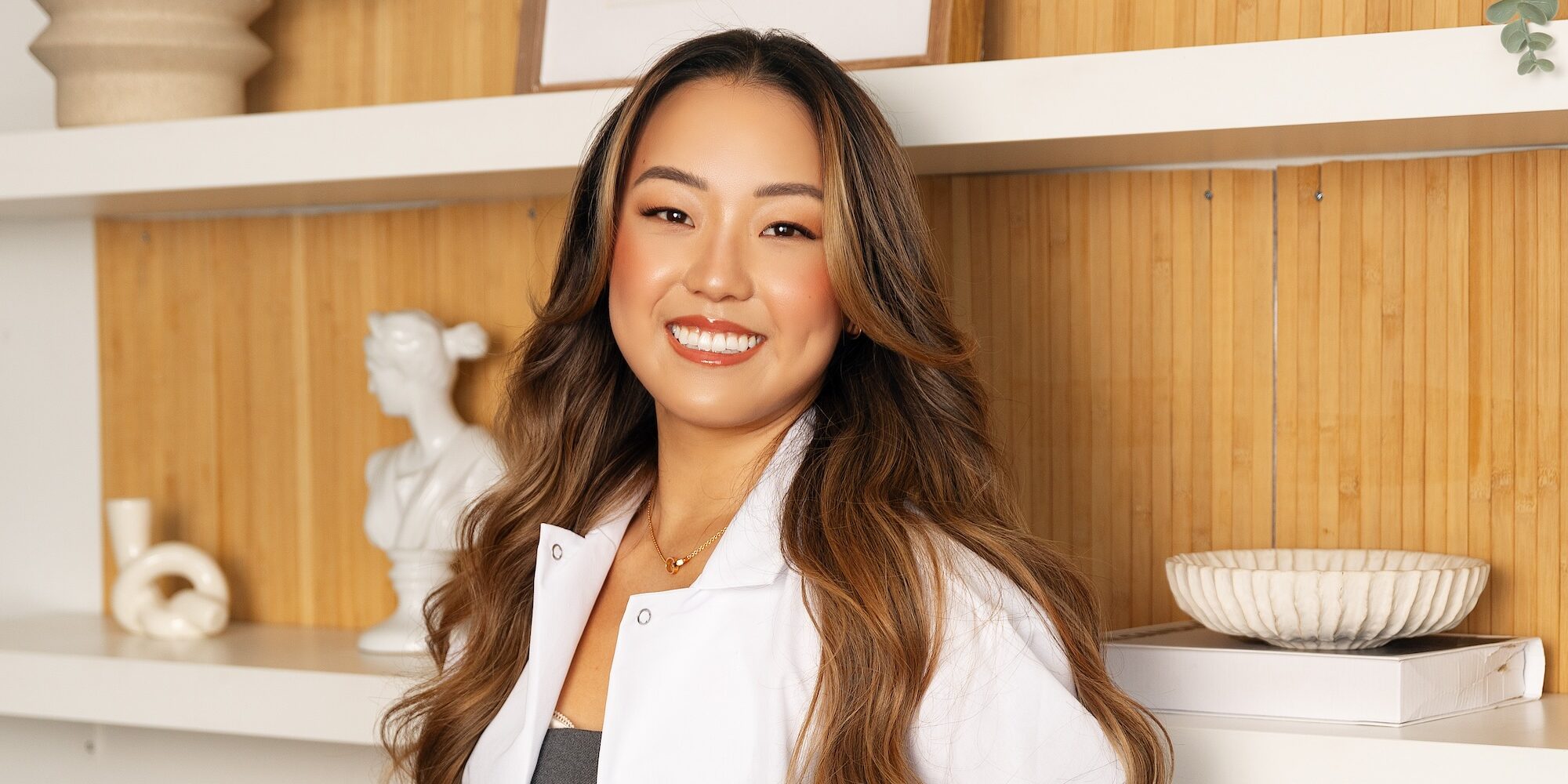
The Formula For Lasting Influence: Jane Tsui Is Creating A Library Of Cosmetic Chemistry Content On TikTok
Many beauty consumers today know cosmetic chemists play important roles in creating the skincare, makeup, body care and haircare products lining the shelves of their favorite beauty stores. Their knowledge is thanks to cosmetic chemists like Jane Tsui taking to social media to explain what they do.
Tsui has a combined 200,000-plus followers on Instagram and TikTok, where she uses the handle @janethechemist and investigates ashy blush formulas, deciphers ingredients such as magnesium carbonate, reviews products, takes her audience shopping and much more.
Not even a decade ago, when she studied chemistry in college at UC Irvine, Tsui wasn’t aware cosmetic chemistry was a field she could pursue. Entering the beauty industry, where she started with an internship at a packaging supplier in 2017 and landed a gig at a contract manufacturer in 2018 before working in product development for a skincare brand, proved to her it could be a long-term occupational opportunity.
Now, Tsui’s income is split evenly between brand consultancy and her social media presence. She says, “I joke with people that, once my consulting ramps up and I have a really amazing client that sells like Susan Yara [at Naturium] does, I will be perishing off the internet.”
Ahead, we chat with Tsui about her career trajectory, the content that performs best for her and whether she plans to launch a brand.
When did you start loving science?
I was in high school, and I had a really fantastic chemistry teacher. In high school, your teacher makes or breaks your love of a subject. I had a terrible biology teacher. If I had a better biology teacher, I would’ve done biochem, but I was so jarred from it that I decided to do chemistry in college.
I’ve always been a math and science person. Growing up, my parents set me up in that way. They would always send me to afterschool programs in the STEM field. I would do science camps. I was also really artistic, I grew up as a dancer. When it came to dancing, I played with so much makeup, and I loved to do everyone else’s makeup and talk about skincare. I figured there had to be a world where science and dance collided, and that’s how I ended up in cosmetic chemistry.
How did you land a gig at a contract manufacturer?
I had a family friend who works in the cosmetic industry. She represents a supplier that would sell ingredients to chemists to use in their formulation. She took me to my first Society of Cosmetic Chemists meeting. The SCC really changed the trajectory of everything I’ve done. It was the reason why I got my first job.
At the meetings, they usually go around and say, “Is anyone new or does anyone have any announcements?” My family friend put my hand up and was like,” Jane, you should introduce yourself, and you should say what you want to do.”
I said I was a new grad looking into getting into the formulation space, and it just so happened that a contract manufacturer was in the same room. She came up to me after and was like, “We’d love to hire you and get you started.” The rest is history.
What were your primary duties at the contract manufacturer?
When I first started, it was just batching products. There was another chemist there who would create formulas. As I would batch them, she would walk me through her thought process on why each ingredient was put into the formula and if we needed to tweak something. Then, we would go over things like stability issues. She would also teach me how to troubleshoot. Working closely with her taught me so much.
Eventually, she left, and I was alone. That’s when I had to do things myself and really learn. I would stay late in the lab working on creating my own formulas, troubleshooting and seeing what works.
I tell every chemist going into this field, you can learn as much chemistry as you want in a textbook, but until you get into the lab, and you fail at making something, that’s when you’re going to learn. I messed up a ton, but taught me so much about how to be a better formulator. That’s how I eventually started formulating on my own and then went to the next job and continued on from there.
What products were you formulating?
They were for a wide range of brands. We worked on haircare, skincare, body care. I was making bath salts, pillow mists, fragrances, even teeth whiteners at a certain point, just a huge melting pot of different types of products.
What did you do after the contract manufacturer?
I got poached by a big pharma brand. I went from working in a really fast-paced environment to pharma, which is a lot slower. I was there for about three and a half years, and I went from working on 20 projects a week to one project over the course of a year or two.
I got to learn the biochem that I didn’t get to do in college at that job because there was a dedicated skin biology and histology team that I would work really closely with. They taught me about different biomarkers. How do we test for ingredients to understand whether they’re really providing efficacy? What markers are we looking at to up-regulate or down-regulate? That was so fascinating for me.
I was on the formulation team, and not only did I work on the formulations, I also did something called tech transfer, and tech transfer is basically more of an engineering role. I didn’t have an engineering degree, so I was very nervous. My boss saw something in me, and I can never thank him enough.
Basically, I would work on the engineering of bringing a small batch from the lab in tiny beakers to huge tanks in the manufacturing space and ensuring that the product is replicable in a large tank. I traveled a lot for that job because I had to go to all of the contract manufacturers and oversee production.
What came next?
I went to work for a brand. When I was at pharma, I was given the option to go get my master’s in cosmetic science, but I really wanted to get back to my creative side, so I moved into product development. Product development is different in the sense of, not only do you oversee the formula, you oversee the entire life cycle of the product.
In my previous roles like in pharma and the contract manufacturer, I was focused on the formula, but in product development, I could have input on the brief and the story of the product or the packaging or how we’re going to market it to consumers. I could really see everything and that really excited me. Now, I have my own lab, and I’m able to do formulation and product development for my clients.
When did you open your lab?
Last May. I had my lab while I was working my full-time product development job, but I mainly used it to experiment and used it as my own playground to make anything that I wanted. I really missed that. Then, I ended up transitioning that space to be more for my consulting business and obviously for social media. I’d film and do experiments in there.
You particularly enjoy formulating skincare. Are the majority of your clients skincare brands?
Yes, I feel like that is the category everybody wants to focus on. I do have inquiries here and there for hair because hair is on fire right now.
I’ve been dying to get a customer that wants to do makeup because I want to do color. I’m up for the challenge. When you’re working for a contract manufacturer, doing 20 projects of color is overwhelming, but if I had one that I could focus on, I would love that.
When did you start on social media?
Everything happened by accident. When I was working at my former job—and I don’t think I was allowed to do this—I would post my phone up and record myself making something. People were like, “Wait, what are you?” People see people in labs doing analytical studies, but I was making products and putting it on my skin. They’re like, “Oh my gosh, I never knew your job existed.”
I would also post, what is niacinamide or what is vitamin C in your skincare? We just use things on our face, but what are all these ingredients? Since I’ve done social media and since there have been more cosmetic chemists online talking about ingredients, I’ve noticed a huge shift in the market where brands are so science-focused when it comes to skincare now. Brands are highlighting specific ingredients because consumers are getting smarter.
You have 10-year-olds on social media telling people what ingredients to look for. They’re definitely coming for my job. It’s crazy to see how educated consumers are about what they’re putting on their face now.
@janethechemist 👀⚠️ Trend alert! Glossy blushes are now in and I am here for it!! Pretty sure I’ll look back on these photos and tell myself I had blush blindness… but no one can stop me 😂 What are your favorite blushes this summer? ☺️💖 Products mentioned: @Haus Labs by Lady Gaga Glassy Hibiscus @rhode skin Skin Piggy #blush #trend #cosmeticchemist #science #makeup
What content tends to perform the best?
That’s something that I get asked a lot, and I don’t know if I have a direct answer because social media evolves so fast that I find myself having to evolve my content to keep up with the trends. At a certain point, my ingredient breakdown videos were really doing well. Now that everyone knows these ingredients, they’re on to the next thing.
Then, I started talking about more science and their skincare. What is it that we’re looking for beyond just the ingredients? What makes a dandruff shampoo work so well? What’s the technology behind it?
Now I’m seeing, as much as people love skincare, there’s a little bit of fatigue in it, and people are starting to pick up on makeup again. With social media, makeup is much more visual. Lately, I’ve been evolving my content to be more makeup focused.
People love blushes. I think there was a million blush launches in the last month, so now I’m starting to talk about trends and what ingredients we’re seeing that are contributing to these trends. The educational content definitely performs a lot better than other things. I’ll try to incorporate more personable content here. I think it’s important so that I’m not just a robot online.
Do you have a platform of choice?
I gained a lot of traction on TikTok, and although I have loved TikTok for so long, I’ve been starting to really enjoy Instagram so much more. Even though my following is a lot smaller, the community on Instagram is so much stronger with my broadcast channel, and I have so much more engagement.
TikTok is where people go to brain rot. They’re just sitting there mindlessly scrolling, and they’re not really absorbing the information.
Sometimes I find that videos that do better on TikTok don’t do as well on Instagram because there’s two different types of viewers. People are looking for information on Instagram, whereas on TikTok you’re being fed information that you didn’t know you needed, but you need to deliver it in such a short and concise way. On Instagram, people are willing to sit and work through the information with you and understand it.
What are your future goals?
My goal is to create organic and educational content that can live on its own. Views and virality are not my focus. I just want to create content so people can search and watch it.
The goal is that I can also bring in the right clients because I want to attract the right client base where they value the education and the science behind creating a brand. Currently, I have the most fantastic clients that do value science, and that is exactly what I want.
Would you consider launching your own brand?
I get asked all the time. I did at one point, and I will never write it off completely, but I don’t think I can confine myself into one category.
Now that I’ve worked on a little bit of hair, a little bit of skin, a little bit of teeth whitening, I enjoy the switching of my brain to different categories. If I had to launch my own brand, I just don’t think it would do well because I cannot pick a thing to focus on.
This interview has been edited for brevity and clarity.

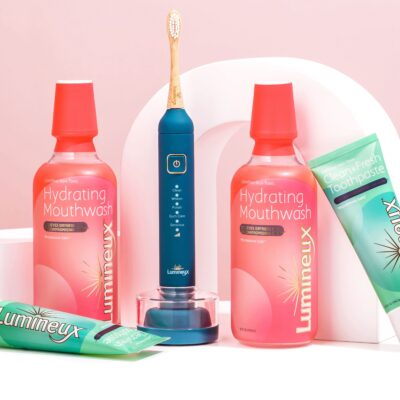
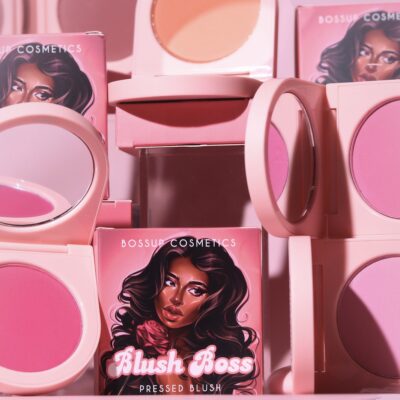
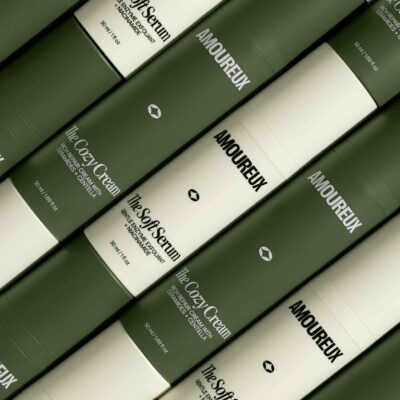
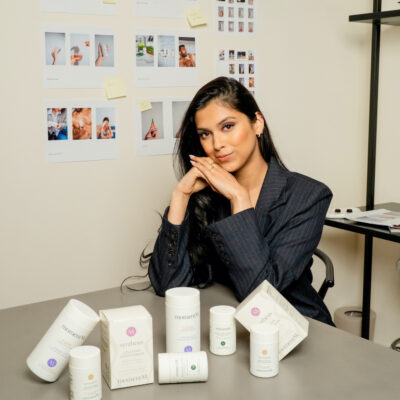
Leave a Reply
You must be logged in to post a comment.